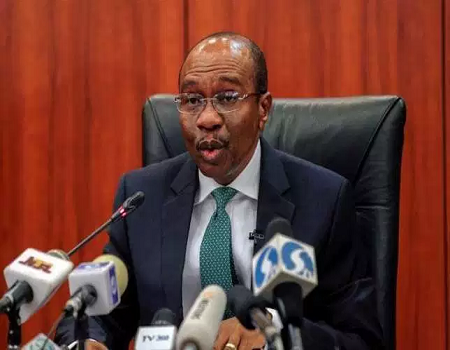THE Central Bank of Nigeria (CBN), has revealed that the adoption of unconventional monetary policy is premised on the need to grow and diversify the nation’s economy.
The CBN Deputy Governor, Corporate Services, Mr Edward Adamu made this known in his opening remarks at the just concluded 28th Seminar for Finance Correspondents and Business Editors in his opening remarks.
Adamu said the federal government has to think outside the box and come up with the unconventional monetary policies as conventional tools were unable to address constraint to economic growth
Represented by the director, Corporate communications, CBN Mr. Isaac Okorafor the deputy governor noted that the policy requires encouraging local production by imposing high tariff and levies on imported goods so that local production, especially farming can grow.
His words: “this unconventional monetary policy initiatives have been premised on ensuring credit delivery to critical sectors of the economy. This has informed the directive to Deposit Money Banks to maintain a minimum Loan to Deposit Ratio (LDR) of 65per cent by the end of December 2019.
“The Bank is also creating the necessary eco-system to inculcate a better credit culture among Nigerians.”
According to him, the objectives of monetary policy may vary from country to country and Nigeria’s recent experience with recession attests to the value of effective implementation of monetary policy.
“Though we adopted unconventional or heterodox monetary policies, they were however, well thought through and have been yielding significant gains for the Nigerian economy.
“Noticeably, the GDP recovery in the third quarter of 2017, which has been sustained for 9 successive quarters after 5 consecutive quarters of negative growth,” he stated
Adamu further stated that there is sufficient evidence of significant reductions in Nigeria’s annual imports bill, and increased non-oil exports.
The CBN’s development Finance interventions according to him, has helped to bolster agricultural production by removing obstacles faced by small holder farmers.
He explained that the interventions have led to improved access to markets for farmers by facilitating greater partnership with agro-processors and industrial firms in the sourcing of raw materials.
The deputy governor said that so far, the programme has supported more than 1.5million farmers across all the 36 States of Nigeria, in cultivating 16 different commodities over 1.4 million hectares of farmland. It has also supported the creation of over 2.5million jobs across the agricultural value chain.




